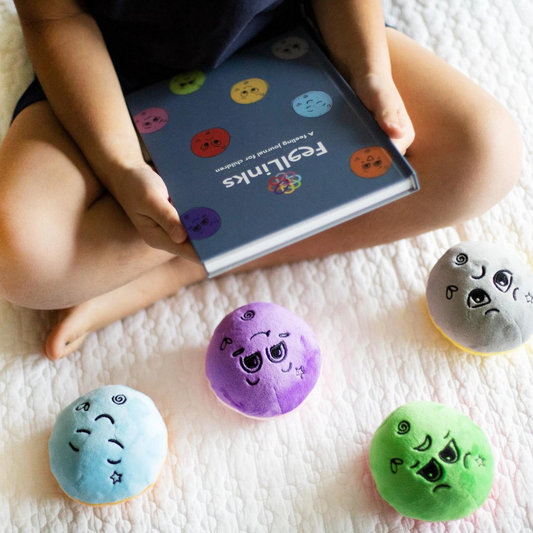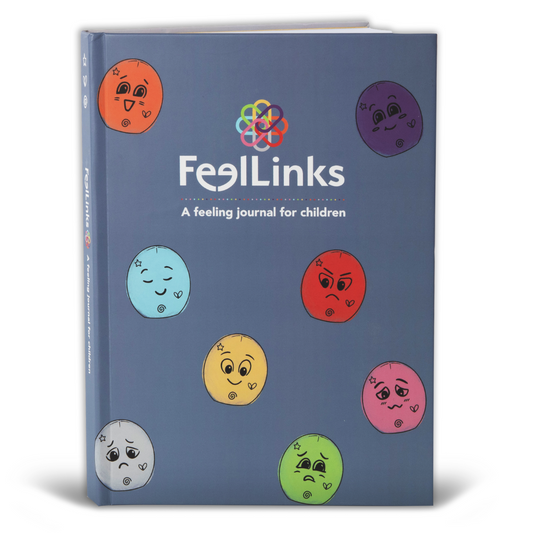10 Tips to Help Kids Express Their Emotions
Share

Open communication between parents and children is essential for healthy emotional development. Here are some effective strategies to help children express their feelings more freely.
Creating a Safe Environment:
Ensure your home is a safe space where children feel comfortable expressing their emotions without fear of judgment or punishment. This begins with parents showing empathy and understanding.
Model Emotional Expression:
Children learn by observing their parents. By openly sharing your own feelings, you are demonstrating that it is normal and healthy to express emotions.
Teach Emotional Vocabulary:
Help your child build a vocabulary to describe their emotions. Modeling by using a variety of emotional vocabulary words in your daily conversations, use tools such as FeelLinks dolls, feelings journal and our award winning book, Feel Trip: A journey through ordinary emotions, as support resources. The greater vocabulary a child has, the better they are able to identify and express their feelings and the better we are able to support their needs.
Validate Emotions:
Acknowledge your child’s feelings, even if you don’t fully understand them. Saying things like, "I can see you're really worried about that,” helps children feel heard and respected.
Ask Open-Ended Questions:
Encourage children to talk by asking open-ended questions like, "How did that make you feel?" instead of more simple yes-or-no questions. This helps children explore and articulate their emotions more deeply.
Active Listening:
Give your full attention when your child speaks. Show that you are listening by making eye contact, nodding, and reflecting back what they are saying. This validates their feelings and encourages them to continue sharing.
Encourage Creative Expression:
Sometimes children find it easier to express emotions through writing, art, music, play. Encourage activities like journaling, drawing, storytelling, or role-playing to help them convey their feelings in non-verbal ways.
Be Patient:
Understand that children might not always be ready to talk about their emotions immediately. Give them time and space, and let them know you're available whenever they are ready to share.
Praise Open Communication:
Positively reinforce your child's efforts to communicate their feelings by acknowledging their courage and honesty. This builds their confidence and encourages future communication.
Seek Professional Help if Needed:
If your child consistently struggles to express their emotions, consider consulting professional to help guide them and provide strategies and support.
By fostering a trusting and understanding environment, parents can help their children feel more comfortable expressing their emotions, leading to stronger family bonds and healthier emotional development.





